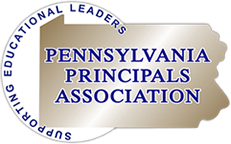Jansante Selected to Participate in Principals’ Leadership Summit in Washington, D.C.
July 1, 2001
(Harrisburg, PA)—Dr. Zeb Jansante, a principal at Quaker Valley High School, Leetsville, Pa., has been selected to participate in the Principals’ Leadership Summit in Washington, D.C., July 15-17, 2001. Dr. Jansante has been selected based on his reputation as an outstanding principal.
The U.S. Department of Education, with assistance from the National Association of Elementary School Principals, the National Association of Secondary School Principals and the National Middle School Association, is sponsoring the summit. It will bring together 100 elementary, middle and secondary school principals from across the nation. Together, principals across the nation will extend the discussion of principal as instructional leader that began at the first summit, held last summer.
The discussion will also be extended to a specific area – the use of assessment data to drive decision-making and increase student achievement in our schools. The format of the meeting will include presentations and both large and small group discussions.
Dr. Jansante began his educational career as a teacher from 1983-1991, then as an assistant principal (1991-1995) and a principal at Elizabeth Forward High School (1995-2000). He has served as principal of the Quaker Valley High School since 2000.
Dr. Jansante is a member of the National Association of Secondary School Principals and the Pennsylvania Association of Secondary School Principals (PASSP) where he serves on the Executive Board as the West III Regional Representative. He is also the chair of the PASSP Principals’ Professional Development Committee (1998-2001), a presenter for the PASSP Principals’ Leadership Academy 2001, a member of the South Hills Area School Districts’ Association and a facilitator for the University of Pittsburgh’s Principals’ Leadership Academy 2001.
PA Principals Association’s mission is to: Assist members in fulfilling their role as instructional leaders and effective managers who promote the best educational program for all students; give members an effective voice in the educational decision-making process at the local, state and national levels; and improve members’ working conditions so that their rights are protected, their job descriptions are reasonable, the importance of their instructional leadership role is recognized and their salaries and fringe benefits are equitable.
